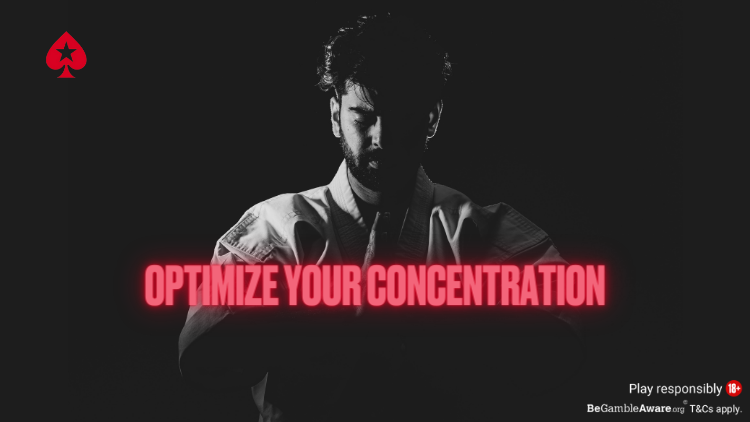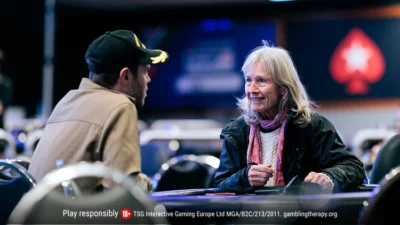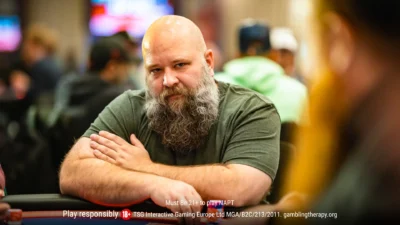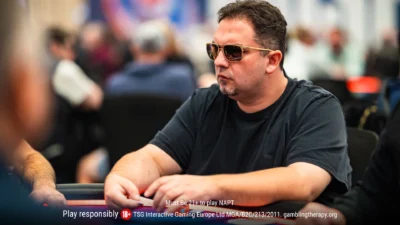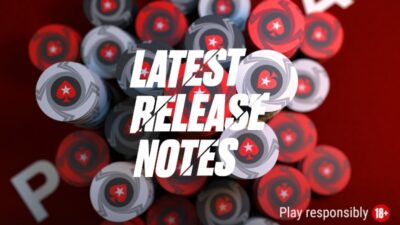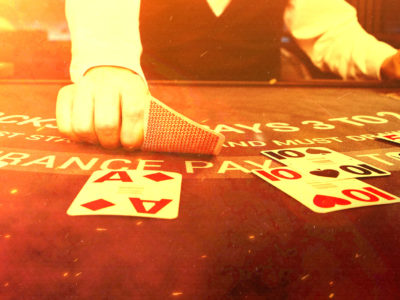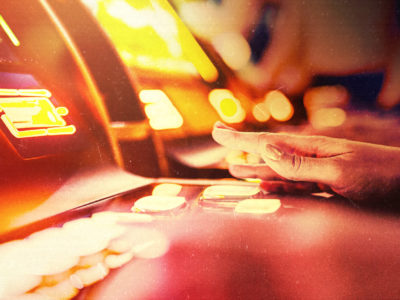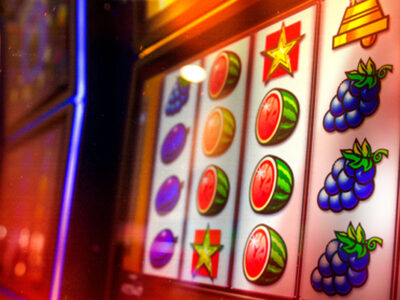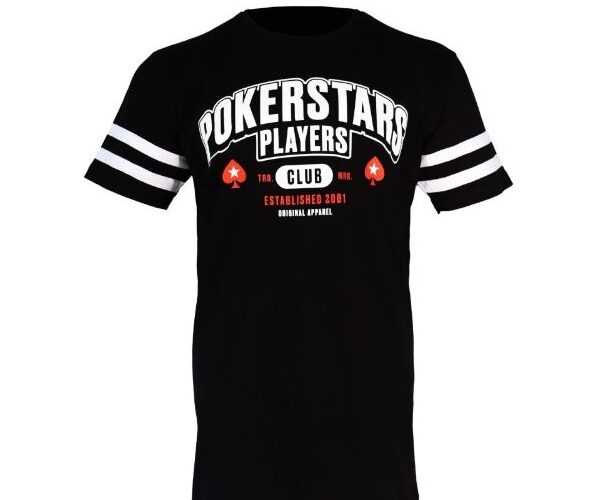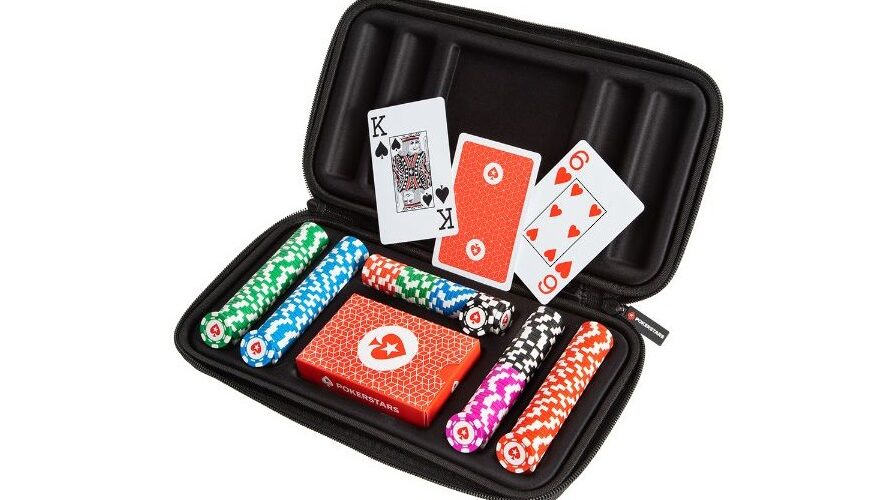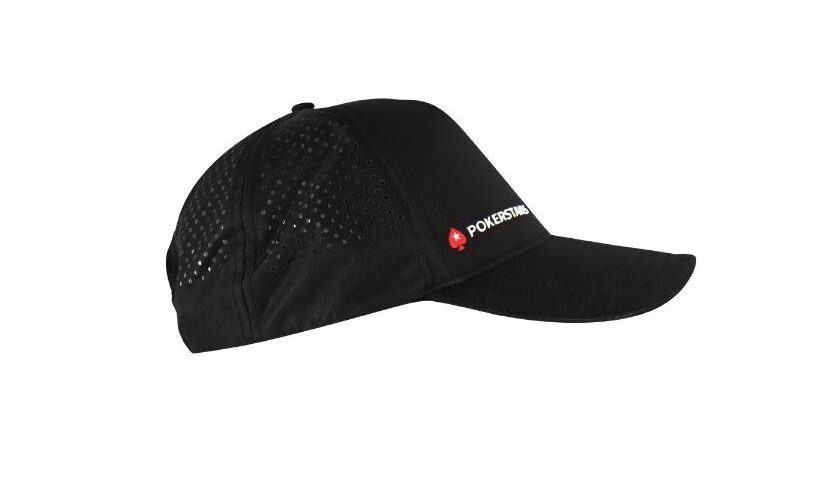Concentration is an essential skill in both live and online poker. It can make all the difference between a losing session and a successful one.
A live poker tournament is likely to last several hours or more. Similarly, online poker tournaments, even turbos, are a commitment in terms of both time and energy. Concentration needs to be optimized not only to avoid mistakes, but to continually analyze as much information as possible – even when you’re not in the hand.
There’s lots of ways you can improve your focus at the poker tables, such as taking notes and eliminating distractions. For serious players, the preparation begins before even sitting down to play.
Preparation starts the night before

Poker preparation begins the night before
The worst way you can approach a poker session is in a state of sleep deprivation. After a lack of sleep, or poor quality sleep, you’re likely to have impaired focus, attention, and information processing. This leads to poorer judgement and bad quality decision making. You’re bound to make more mistakes.
Mood is also affected by a lack of sleep. And you don’t really want to be in a bad mood when your Aces get cracked. Starting a session in a bad mood will lead quickly to tilt.
A good night’s sleep, in contrast, will set you up for optimal performance. Sleeping also aids memory consolidation, helping you to learn and process new information.
Exercise improves concentration and cognition
We all know the drill by now. Exercise is really good for us, mentally and physically. Plenty of research backs this up. A study published in NCBI showed that physical fitness is related to attention and concentration, and several studies have shown that concentration is boosted for up to an hour after a short burst of exercise.
Exercise is known to boost the brain’s dopamine and serotonin levels, hormones which affect the regulation of mood, focus and attention.
What’s all this saying for poker players? If you want to optimize your performance, you’ll want to integrate one or more periods of exercise into your day. How much exercise is required is a subject of much debate. The accepted norm is at least thirty minutes a day, but there’s no harm in taking more if you can.
Healthy diet promotes healthy thinking
I’ve no intention of turning this article into a full blown debate on diet. I’ll leave that to the darker corners of the internet. Let’s just say that healthy eating is related not just to physical wellness, but also to mental health and performance.

Brain foods can help improve concentration
Several categories of food have been identified as brain foods, whether for the antioxidants, vitamins or omega oils that they contain. These foods include green leafy veg, fish, nuts and berries. Foods that are high in saturated fats and sugars have the opposite impact, negatively impacting mood and concentration.
Pertinent to a healthy diet is staying hydrated. This in itself will help the mind stay sharp and focused, and also helps the body absorb nutrients from all the brain foods you’ll be eating.
Research suggests that tea and coffee could provide a short term boost to focus. However, the side effects of caffeine could be detrimental over the course of a longer session. Green tea or water is the safe option here.
You can find out more about poker and health here.
Planning your poker session to optimize concentration
There’s lots of theories out there about how to break down a task to optimize concentration and performance. Two individual studies have shown that the exact amount of time to perform a task for optimal concentration is 52 minutes, followed by a 17 minute break.
It’s not perfect, but this fits reasonably well with the structure of an MTT session, during which players are allocated a five minute break every 55 minutes. Make the most of the break to have a stretch and reset your attention.
If you play SNGs or cash games, you’ll need to factor in your own breaks and stick to them. This does, however, give you more flexibility to find your performance sweet spot. You are free to take longer breaks if needed, or to play for shorter chunks of time.
What about the optimal number of hours to play over the course of a day? Recent debates on how to structure the working day have suggested that five hours work may actually facilitate greater productivity than eight hours on the same tasks.
Poker players can learn from this. It’s better to play less hours and play optimally, than to ruin an otherwise well played session by playing badly for a few hours at the end.
When planning your poker sessions, flexibility is important. If, for example, you’re overworked or feel tired from lack of sleep, be prepared to take more rest time and reduce the length of your session, or consider giving it a miss.
Remember, always play poker responsibly.
Practice improves concentration
If fifty minutes is optimal for concentration, five hours over the course of a day, how do professionals like Team Pro Lex Veldhuis play and stream online poker for ten hours straight?
The answer is practice.
There are several reasons why the brain can stop focusing during play. It gets distracted. It can start to autopilot, skimming over each hand as if it were the same as the last. Or, the mind can become overloaded with information.

How do pros like Lex Veldhuis play poker for 10 hours straight?
Professionals are experienced and well practiced enough not to let these happen. Distractions are eliminated, each situation is carefully analyses to avoid autopilot, yet a solid background knowledge of the game prevents information overload. Research even shows that the mind of poker pros responds differently in a physiological sense when playing.
With experience, you should be able to increase the amount of information you can process, therefore allowing you to increase the number of tables you are playing and the length of time you’re playing for. For now, enjoy getting used to your own rhythms and building up your concentration skills to play your A-game more often.
Back to TopView Other Blogs




